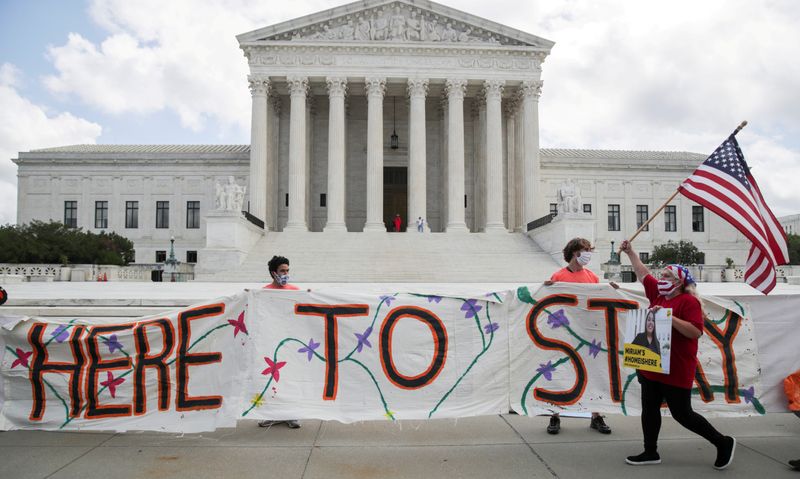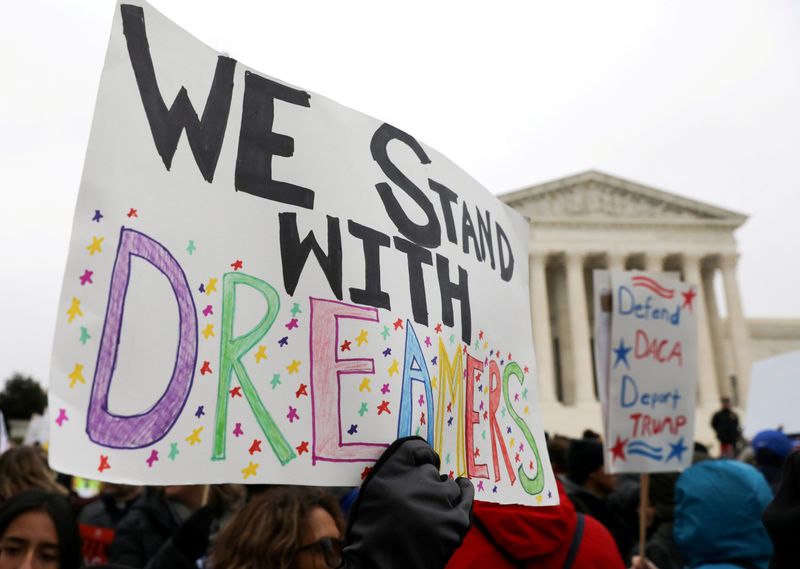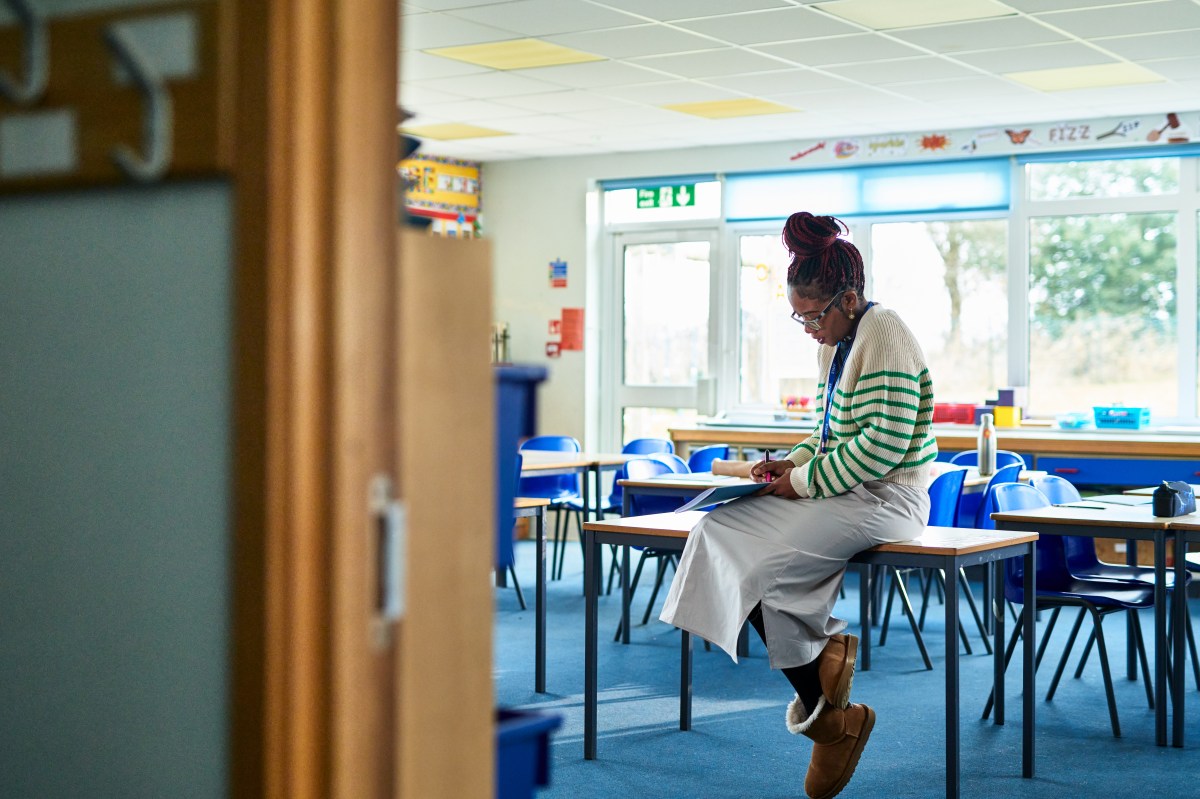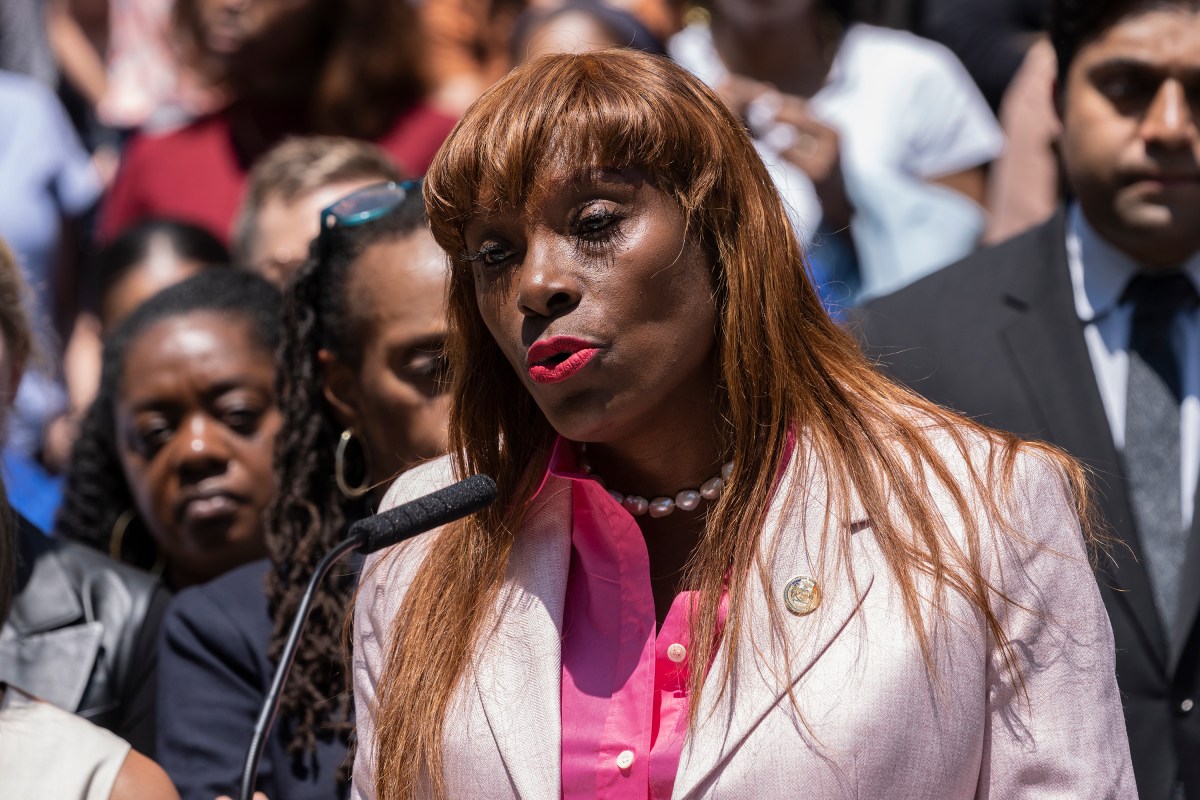(Reuters) – A U.S. judge in Texas will hear arguments on Tuesday in a lawsuit that could end an embattled program that grants deportation relief to hundreds of thousands of immigrants who came to the United States as children.
The case is one of the most significant challenges yet to the legally and politically contentious Deferred Action for Childhood Arrivals (DACA) program created by former U.S. President Barack Obama in 2012.
A nine-state coalition led by Texas Attorney General Ken Paxton is seeking to end DACA, arguing that Obama created the program without going through the correct regulatory steps and exceeded his executive authority.
Republican President Donald Trump moved to end DACA in 2017, but the Supreme Court found that his administration’s efforts were “arbitrary and capricious” and did not follow proper procedures.
The Supreme Court did not rule on the overarching legality of the DACA program, but that matter could be addressed in the Texas-led lawsuit being heard on Tuesday.
Paxton also led the multi-state effort to get the presidential election results from four states thrown out, which the Supreme Court swiftly rejected.
The DACA case is before Houston-based U.S. District Judge Andrew Hanen, who ruled against a more expansive Obama deportation relief program in 2015. The 5th U.S. Circuit Court of Appeals upheld that earlier ruling and the Supreme Court deadlocked 4-4 on the issue in 2016, leaving the lower court decision in place.
Hanen has signaled some ambivalence on DACA, writing in 2018 that “the egg has been scrambled” for recipients since the program had been in effect for years.
If Hanen rules in favor of the state challengers, future applications to DACA could be closed, and current recipients could eventually lose the benefits conferred on them by the program, which not only protects from deportation but also provides access to work authorization, driver’s licenses and, in some cases, forms of educational financial aid.
The plaintiff states have said they are amenable to phasing out the program, which does not create a pathway to citizenship.
Daiana Lilo, a 20-year old DACA recipient of Albanian descent currently studying at Harvard University, said she plans to listen to the court hearing remotely.
Lilo worked on President-elect Joe Biden’s campaign as an organizer and wants the Democrat to secure more permanent protections for her and others in the program. Biden becomes president on Jan. 20.
“I hope they recognize and see the Dreamers that have helped them,” she said of the incoming Biden administration. “Now it’s time to help us.”
(Reporting by Mimi Dwyer and Ted Hesson; Editing by Bill Berkrot)


























